2024 Plenary Keynote Sessions
Monday, May 13 | 4:35 - 5:20 PM
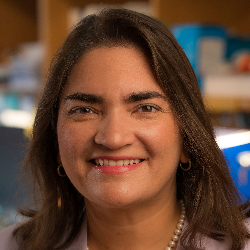 Driving New CAR T Cells
Driving New CAR T Cells
Marcela V. Maus, MD, PhD, Associate Professor, Medicine; Director, Cellular Immunotherapy, Massachusetts General Hospital
We will talk about various roads and challenges in driving new CAR T cells toward the clinic, and learnings from clinical experience.
5:20 – 6:05 PM
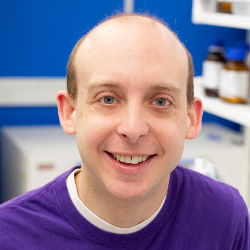 PEGS 2024 YOUNG SCIENTIST KEYNOTE HONOREE
PEGS 2024 YOUNG SCIENTIST KEYNOTE HONOREE
High-throughput Discovery of Protein Folding Stability and Dynamics
Gabriel J. Rocklin, PhD, Assistant Professor, Pharmacology, Northwestern University
Every protein has its own conformational energy landscape that governs its folding stability and dynamics. These varied landscapes are rarely predictable in protein engineering but strongly influence function, aggregation, immunogenicity, and more. Our lab develops new large-scale methods to measure stability and dynamics. I will share lessons from stability measurements of >750,000 protein domains and dynamics measurements of >5,000 domains, highlighting the potential to rationally engineer stability and dynamics.
Tuesday, May 14 | 10:15 - 11:00 AM
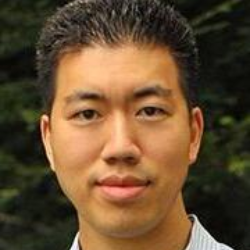 Base Editing and Prime Editing: Engineered Proteins that Precisely Correct Pathogenic Mutations in Cells, Animals, and Patients
Base Editing and Prime Editing: Engineered Proteins that Precisely Correct Pathogenic Mutations in Cells, Animals, and Patients
David R. Liu, PhD, Richard Merkin Professor and Director, Merkin Institute of Transformative Technologies in Healthcare; Broad Institute Core Institute Member and Vice-Chair of the Faculty; Director of the Chemical Biology and Therapeutic Sciences Program; Howard Hughes Medical Institute Investigator; Thomas Dudley Cabot Professor of the Natural Sciences and Professor of Chemistry and Chemical Biology, Harvard University
In this lecture, I describe the development and therapeutic application of two precision gene editing technologies that install or correct targeted mutations without requiring double-strand DNA breaks, thereby minimizing undesired consequences of chromosomal cleavage. We developed base editors, proteins that directly perform chemistry on individual DNA bases in living cells to install or correct mutations at targeted positions in genomic DNA. We recently engineered CRISPR-free, all-protein base editors that enabled the first purposeful changes in the sequence of mitochondrial DNA in living cells. By integrating base editors with ex vivo and in vivo delivery strategies that deliver therapeutic proteins, we rescued animal models of human genetic diseases including sickle-cell disease, progeria, and spinal muscular atrophy (SMA). Single-AAV base editing systems enhance the safety and practicality of in vivo base editing. Our development of engineered virus-like particles (eVLPs) provide additional in vivo delivery methods for gene editing proteins that minimize off-target editing and the risk of oncogenic DNA integration.
Thursday, May 16 | 12:10 - 12:55 PM
Plenary Fireside Chat: What Comes Next in Antibody Discovery and Engineering?
Moderator:
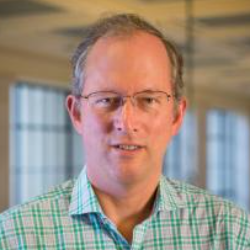
K. Dane Wittrup, PhD, C.P. Dubbs Professor, Chemical Engineering & Bioengineering, Massachusetts Institute of Technology
- How significantly will domain antibodies supersede Fabs in antibody-like structures in the future? Considering the generally superior biophysical attributes of domain antibodies relative to Fabs, what advantages, aside from extensive clinical experience, do Fabs offer?
- Is the field of antibody engineering nearing a point where it can be considered a solved problem? How frequently do we fail to discover a lead candidate that aligns with a realistic target product profile?
- If we had access to a completely predictive computational method for antibody design, how would this quantifiably enhance the antibody discovery and optimization process? Would this truly revolutionize the field, especially considering the advanced experimental techniques we currently possess? Is there often (or ever) an atomically precise understanding of the exact structural epitope we aim for an antibody to target in order to achieve pharmacological benefit? Are there gaps in the existing experimental tools for developability optimization?
Panelists:
 Paul J. Carter, PhD, Genentech Fellow, Antibody Engineering, Genentech
Paul J. Carter, PhD, Genentech Fellow, Antibody Engineering, Genentech
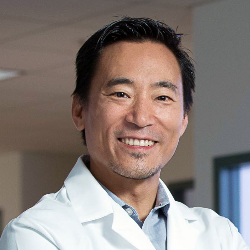 Daniel S. Chen MD, PhD, Founder and CEO, Synthetic Design Lab
Daniel S. Chen MD, PhD, Founder and CEO, Synthetic Design Lab
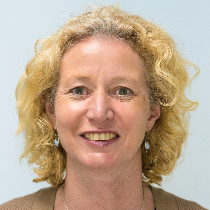 Jane K. Osbourn, PhD, CSO, Alchemab Therapeutics Ltd.
Jane K. Osbourn, PhD, CSO, Alchemab Therapeutics Ltd.
PLENARY KEYNOTE BIOGRAPHIES
Marcela V. Maus, MD, PhD, Associate Professor, Medicine; Director, Cellular Immunotherapy, Massachusetts General Hospital
Marcela Maus, M.D., PhD, is currently an Associate Professor at Harvard Medical School, the Paula O’Keefe Chair in Oncology and Director of Cellular Immunotherapy at Massachusetts General Hospital (MGH) Cancer Center, and an Attending Physician in the Hematopoietic Cell Transplant and Cell Therapy division of Oncology at MGH. She is an Associate Member of the Broad Institute of Harvard and MIT, and an Associate Member of the Ragon Institute of MGH, MIT, and Harvard. Dr. Maus is internationally known for her work as a translational physician-scientist in the field of immunology, particularly as it relates to T cell immunotherapies and cellular therapies in the treatment of cancer. Her laboratory focuses on the biology of human T cell activation, costimulation, and memory, and on the application of human T cell therapies to human disease, including forward and reverse translation of engineered T cell therapies in early-phase clinical trials. She has authored over 100 papers indexed in Pubmed and holds multiple NIH R01 grants and several Investigational New Drug Applications (IND’s). Dr. Maus completed undergraduate studies at Massachusetts Institute of Technology (MIT) and holds graduate degrees (M.D., PhD) from University of Pennsylvania. Dr. Maus trained in internal medicine at University of Pennsylvania and in hematology and medical oncology at Memorial Sloan Kettering Cancer Center. She also serves on several scientific and clinical advisory boards for the biotechnology industry as well as external academic medical centers.
PEGS 2024 YOUNG SCIENTIST KEYNOTE HONOREE
Gabriel J. Rocklin, PhD, Assistant Professor, Pharmacology, Northwestern University
Gabriel Rocklin did his Ph.D. research at the University of California, San Francisco, supervised by Brian Shoichet and Ken Dill. As a postdoctoral fellow with David Baker at the University of Washington, he pioneered the use of large-scale protein design to understand protein biophysics. In 2019 he started his independent lab in the Department of Pharmacology and Center for Synthetic Biology at Northwestern University. There, his group develops high-throughput methods to understand protein biophysics and to design new protein therapeutics.
David R. Liu, PhD, Richard Merkin Professor and Director, Merkin Institute of Transformative Technologies in Healthcare; Core Institute Member and Vice-Chair of the Faculty, Broad Institute; Director, Chemical Biology and Therapeutic Sciences Program; Investigator, Howard Hughes Medical Institute; Thomas Dudley Cabot Professor of the Natural Sciences and Professor of Chemistry and Chemical Biology, Harvard University
David R. Liu is the Richard Merkin Professor and director of the Merkin Institute of Transformative Technologies in Healthcare, vice-chair of the faculty at the Broad Institute of MIT and Harvard, the Thomas Dudley Cabot Professor of the Natural Sciences at Harvard University, and a Howard Hughes Medical Institute (HHMI) investigator. Liu’s research integrates chemistry and evolution to illuminate biology and enable next-generation therapeutics. His major research interests include the engineering, evolution, and in vivo delivery of genome editing proteins such as base editors to study and treat genetic diseases; the evolution of proteins with novel therapeutic potential using phage-assisted continuous evolution (PACE); and the discovery of bioactive synthetic small molecules and synthetic polymers using DNA-templated organic synthesis and DNA-encoded libraries. Base editing—the first general method to perform precision gene editing without double-stranded breaks, and a Science 2017 Breakthrough of the Year finalist—as well as prime editing, PACE, and DNA-templated synthesis are four examples of technologies pioneered in his laboratory. These technologies are used by thousands of laboratories around the world and have enabled the study and potential treatment of many genetic diseases.
K. Dane Wittrup, PhD, C.P. Dubbs Professor, Chemical Engineering & Bioengineering, Massachusetts Institute of Technology
Prof. Dane Wittrup attended the University of New Mexico as an undergraduate, graduating Summa Cum Laude with a Bachelor's in Chemical Engineering in June 1984. Wittrup went on to attend the California Institute of Technology in Pasadena, where he worked with Prof. James Bailey on flow cytometry and segregated modeling of recombinant populations of Saccharomyces cerevisiae. After obtaining his PhD in Chemical Engineering with a minor in Biology in 1988, he spent a brief time working at Amgen before becoming an Assistant Professor of Chemical Engineering at the University of Illinois at Urbana-Champaign in 1989. He moved to the Massachusetts Institute of Technology in September of 1999, where he is now the C.P. Dubbs Professor of Chemical Engineering and Biological Engineering, in addition to working with the Koch Institute as the Associate Director for Engineering.
Paul J. Carter, PhD, Genentech Fellow, Antibody Engineering, Genentech
Dr. Carter received a B.A. in Natural Sciences from Cambridge University and his Ph.D. in Molecular Biology under Sir Greg Winter at the MRC Laboratory of Molecular Biology in Cambridge. He then completed a postdoctoral fellowship with Dr. Jim Wells at Genentech, now a member of the Roche Group. Dr. Carter has over thirty years of experience in biotechnology, focusing on the discovery of antibody therapeutics. He played a key role in the creation of antibody humanization methods at Genentech utilized over many years for nine approved antibody products used to treat millions of patients worldwide. Dr. Carter and collaborators invented ‘knobs-into-holes’ technology widely used in generating bispecific antibodies. He is currently a Genentech Fellow in the Department of Antibody Engineering.
Daniel S Chen MD, PhD, Founder and CEO, Synthetic Design Lab
Daniel S. Chen, MD, PhD, is the Chief Medical Officer for IGM Biosciences, and former Vice President, Global Head of Cancer Immunotherapy Development at Genentech/Roche. He received a BS degree in Biology from the Massachusetts Institute of Technology (1990), a PhD in Microbiology & Immunology (1996) and MD (1998) from the University of Southern California. Daniel completed an Internal Medicine Residency and Medical Oncology Fellowship at Stanford University (2003). He went on to complete a post-doctoral fellowship with Mark Davis in immunology and ran the metastatic melanoma clinic at the Stanford Cancer Center from 2003-2006. At Genentech from 2006-2018, he led the clinical development for atezolizumab, a PD-L1 inhibitor, from the time the program was in research through global approvals in multiple indications worldwide. At IGM, Daniel focuses on the development of novel engineered multivalent and multispecific therapeutics. He serves on the Board of Directors for SITC, gave the keynote presentation at the AACR NCI EORTC Annual Meeting 2014 and presented at the US Congressional Briefing on Immuno-Oncology in 2017. He has continued to publish with academic and industry collaborators in the field of cancer immunotherapy, including the often referenced Chen and Mellman manuscripts, “Elements of cancer immunity and the cancer-immune set point” and “Oncology meets Immunology: the Cancer-Immunity Cycle.”
Jane K. Osbourn, PhD, CSO, Alchemab Therapeutics Ltd.
Jane is Chief Scientific Officer at Alchemab Therapeutics, which focusses on identifying self-protective antibodies as therapies for neurodegeneration and oncology. She was an early employee of Cambridge Antibody Technology, which became MedImmune, the biologics arm of AstraZeneca, where she contributed to the development of phage display technology, authored many key publications and patents, and contributed to the discovery and development of eight marketed drugs. She is passionate about the development of the biotechnology sector and served as Chair of the UK BioIndustry Association from 2015-2019. She is also the Chair of Mogrify, a Cambridge-based cell-therapy company, a Director of Cambridge Enterprise, and of Babraham Research Campus. In 2019 she was awarded an OBE for services to drug discovery, development and biotechnology, and the Scrip Lifetime Achievement Award for contribution to the pharma industry.